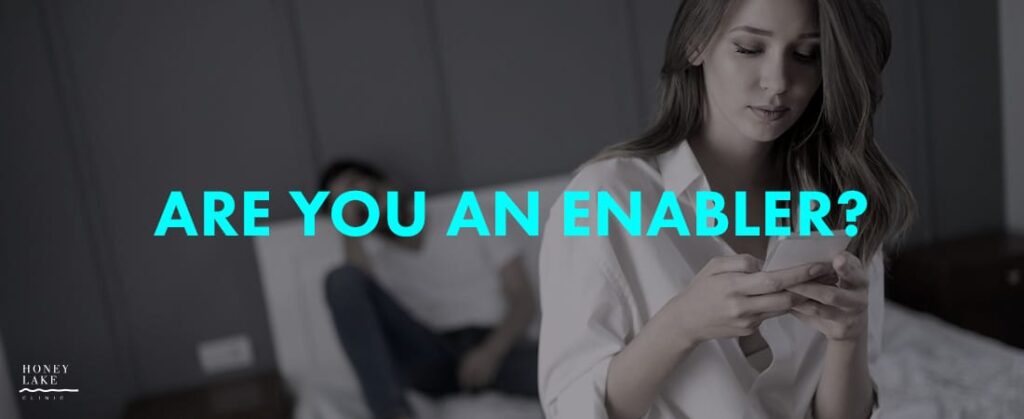Are You an Enabler?
The dictionary definition of an enabler reads: a person or thing that makes something possible; a person who encourages or enables negative and/or self-destructive behavior in someone else. Where substance abuse or addiction is concerned, anyone can be an enabler—a parent, a spouse, a friend. You’re likely reading this article asking yourself, “Am I an enabler?”
In any form, enabling or empowering someone in their abuse or addiction is detrimental to the recovery process. Enablers are part of the problem, not a part of the solution. Denial isn’t love. It is neglect.
You are reading this article because someone you love is dealing with substance abuse and/or addiction. We can help. Speak confidentially with a counselor right now at (888) 837-6577.
Here are five signs to suggest you may be enabling someone in their struggles:
1. Ignoring Suspect Behavior
If your loved one is going out at all hours of the night—especially if they’re no longer teenagers and this behavior has no logical explanation—it’s a signal. Strange or extravagant spending or bank withdrawals is another. Losing a job or being kicked out of school, unexpected lifestyle changes, withdrawal from family and established friends, new relationships with people you don’t know—all signals. And if you are ignoring these changes, if you’re looking the other way, you’re enabling.
2. Resentment of The Addict
It’s possible to enable the addiction while growing resentment for the addict. It’s what’s referred to as a self-fulfilling prophecy; the enabler is helping the addict continue their behavior while increasingly disdaining the addict because they’re continuing their addiction. It’s a vicious cycle. If you’re resenting the addict, while ignoring the facts and expecting things to change, you’re living a fairytale. And you’re enabling.
3. Blaming Situations and Others for The Addict’s Actions
In some cases, an enabler may blame others or some specific situation in the addict’s life for his or her addiction. A nasty divorce, being passed over for promotion, a downturn in the economy, some traumatic experience in the past—while all these can be contributors and complicators of an addict’s struggles, they are not to blame. If you are shifting blame, you’re enabling.
4. Lying or Making Excuses for the Addict’s Behavior
Loved ones are often asked to explain an addict’s behavior. Why is he late? Why did he lose his job? Why aren’t they speaking anymore? Do you find yourself making excuses or lying to cover someone’s addiction? It seems counterintuitive: you’re motive in making an excuse is to save the addict from conflict with another, to make the situation better. In reality, you’re enabling.
5. Prioritization
Are you prioritizing the needs of an addict over your own? If rent is due, and you give money to your loved one with the full knowledge they’re going to use it to get high, you’re damning yourself and others around you. You are enabling.
So, Are You an Enabler?
Enabling only leads to more pain, on all sides. Take a good hard look, make an honest assessment. If you’re an enabler, it’s not too late to do something about it. We can help.
Let Us Help You
Our staff is standing by to answer any questions you might have about substance abuse, addiction, and treatment.
At Honey Lake Clinic, our experienced doctors and staff strongly believe that faith-based treatment, encompassing spiritual, physical and mental health, will help clients and their families bring spiritual power and clearer psychological understanding to their healing and recovery.
